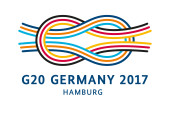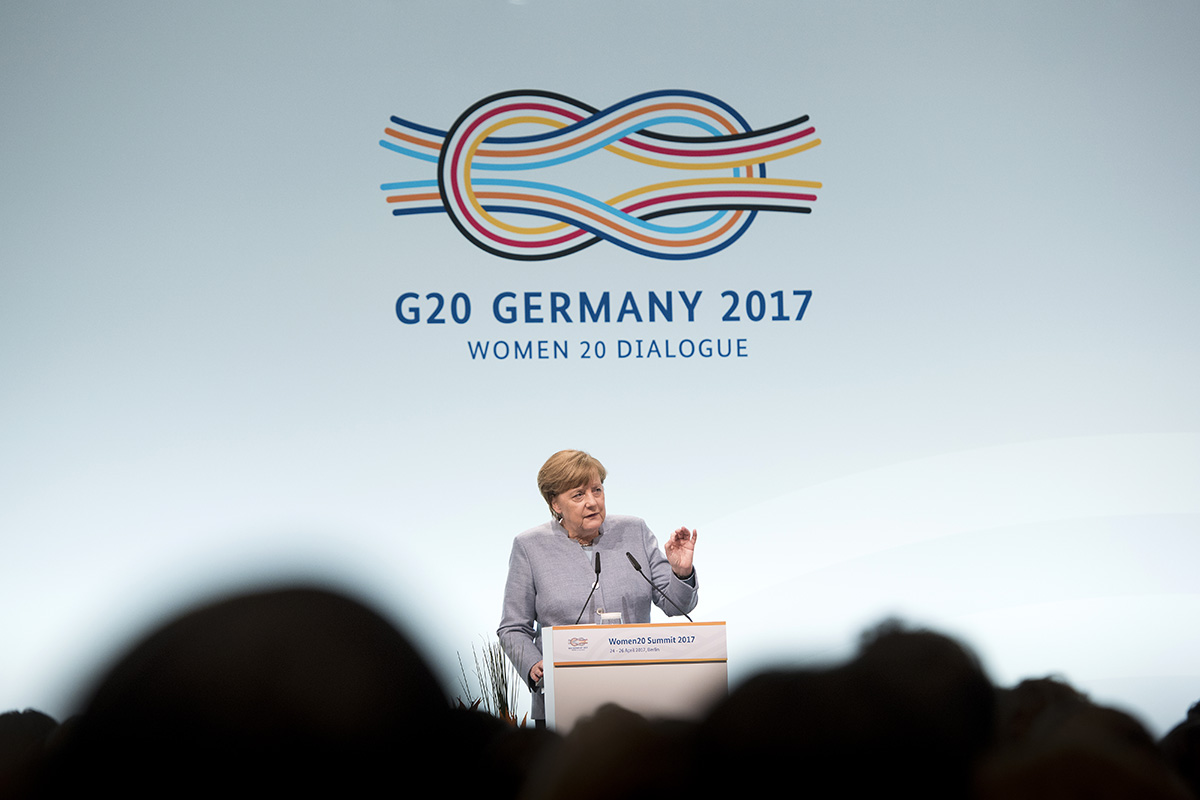Women20 Summit
Angela Merkel wants to strengthen the women's agenda within the G20
At the close of the W20 Summit in Berlin, participants presented Chancellor Merkel with their recommendations. For two days women from the realms of business, science and civil society in G20 states had discussed ways of achieving gender equality within society.
The W20 Summit in Berlin ended with the public presentation of the W20’s demands to Chancellor Angela Merkel in her capacity as acting G20 President. 400 women from the realms of business, science and civil society in G20 states made the most of the forum offered by the summit to discuss key women’s issues. Their overriding goal? To foster equality for women in society.
Staying power called for
The Chancellor pledged to incorporate the women’s recommendations in the G20 process. She did, however, stress that staying power will be called for. Patience and perseverance will be needed, because the G20 operates on the principle of consensus. She has no power to talk another country into undertaking anything it does not want to do. To achieve progress on an issue "you have to keep talking from person to person". But Angela Merkel gave her assurance that she would be doing so with great enthusiasm.
W20 Summit in Berlin
The W20 issues will also play a part in other civil society summits in the run-up to the G20 leaders’ summit, explained the Chancellor. This applies to both the meeting of trade union representatives (L20) and the meeting of business representatives (B20) in May.
The G20 leaders are to meet in Hamburg in July. In the run-up to this event, civil society representatives from various fields are meeting so that their demands and proposals can be incorporated in the G20 process. Dialogue fora are being held to hammer out political recommendations for the leaders’ summit in Hamburg. All dialogue fora are independent of governments and set their own priorities, although they take their lead from key G20 issues. The two-day Woman20 (W20) summit was one of these dialogue fora.
Empowering women – a G20 priority
The Chancellor pointed out that the leaders of G20 member states have realised that the empowerment of women is an essential cross-cutting issue and an important area for the future of the G20 states. At the G20 summit in the Australian city of Brisbane in 2014, leaders agreed to reduce the gap in labour force participation rates between women and men by 25 per cent by 2025. The Chancellor reported that, as far as she is aware, no G20 state has any intention of abandoning this goal.
The W20 would like to see the economic empowerment of women become a central and integral part of the G20 process.
W20 demands
The demands identified by participants at the W20 summit embrace a number of different fields:
- National governments of G20 states should step up their efforts to raise the percentage of women participating in the labour force in order to achieve the target set at the G20 summit in Brisbane. Indicators should be agreed with which progress can be measured;
- The database on women’s use of loans should be improved;
- Women should be granted enhanced access to business start-up loans;
- Investment in the technical education and training of girls and women should be increased. This includes both training in technical professions and bridging the gender divide in the field of digital technology.
In addition to raising women’s labour force participation as agreed, Angela Merkel saw primarily moves to enhance women’s access to loans and greater efforts to attract women to technical professions and foster their technical skills as topics for the G20.
High-ranking participants in panel discussion
On Tuesday, Angela Merkel took part in a panel discussion on empowering women in the working world as part of the W20 summit. Other speakers included Queen Máxima of the Netherlands, IMF Managing Director Christine Lagarde and Ivanka Trump, daughter and advisor of American President Donald Trump. One key question was how to scale up women’s entrepreneurship worldwide.
The Chancellor took this opportunity to propose establishing a capital fund that would give women in developing countries easier access to loans. Countries like Germany, Canada and the USA could pay into the fund, as could the private sector. The capital fund could be attached to the World Bank and topped up. The funds would then be available to finance women’s entrepreneurship in developing countries. Angela Merkel said she would do everything she could to incorporate this idea in the political process of the G20.
The panel discussion also touched on the introduction of quotas for women in the private sector, the lack of positive role models for women in the business sector, good and reliable childcare, and the need to get men on board.
Tuesday, 25 April 2017


